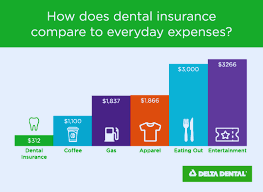Introduction:
When it comes to protecting your vehicle and financial future, understanding the intricacies of auto insurance is crucial. One term you may frequently encounter is “full coverage auto insurance.” But what does this mean, and is it the right choice for you? In this blog post, we’ll break down what full coverage auto insurance entails, its benefits, and factors to consider when deciding whether to purchase it.
What is Full Coverage Auto Insurance?
Full coverage auto insurance typically refers to a combination of different types of coverage that together offer comprehensive protection for your vehicle. While there isn’t a standard definition across all insurance providers, full coverage usually includes:
- Liability Coverage: This is required in most states and covers damages you cause to other people and their property in an accident.
- Collision Coverage: This covers damages to your own vehicle resulting from a collision, regardless of who is at fault.
- Comprehensive Coverage: This protects against non-collision incidents, such as theft, vandalism, or natural disasters.
- Uninsured/Underinsured Motorist Coverage: This protects you if you’re in an accident with a driver who lacks adequate insurance.
Benefits of Full Coverage Auto Insurance
- Peace of Mind: Knowing that you have protection against a wide range of risks can significantly reduce stress, especially if you rely heavily on your vehicle.
- Financial Security: Accidents can be costly. Full coverage ensures you’re not left with hefty repair bills or medical costs, protecting your finances in the long run.
- Higher Resale Value Protection: If your car is totaled, having full coverage ensures you receive a payout that reflects its current value, rather than just covering basic damages.
- Legal Protection: With adequate liability coverage, you are better protected against potential lawsuits stemming from accidents.
Is Full Coverage Auto Insurance Right for You?
While full coverage auto insurance offers extensive protection, it may not be necessary for everyone. Here are some factors to consider:
- Value of Your Vehicle: If you drive an older or less valuable car, full coverage may not be worth the cost. Instead, you might opt for liability coverage and save on premiums.
- Your Financial Situation: Consider your ability to pay for repairs or replacement costs out of pocket. If you can manage those expenses, you might choose a less comprehensive policy.
- Driving Habits: If you frequently drive in high-traffic areas or have a long commute, the likelihood of accidents may increase, making full coverage a wise investment.
- State Requirements: Ensure you meet your state’s minimum insurance requirements, which can influence whether you opt for full coverage.
How to Choose the Right Policy
When selecting a full coverage auto insurance policy, keep the following tips in mind:
- Compare Quotes: Shop around and compare policies from multiple insurance providers to find the best coverage at the best price.
- Review Policy Details: Understand what is included in the policy, any exclusions, and the limits on coverage.
- Consider Deductibles: Higher deductibles can lower your premium, but be sure you can afford to pay that amount if a claim arises.
- Seek Discounts: Many insurers offer discounts for safe driving, bundling policies, or maintaining a good credit score.
Conclusion
Full coverage auto insurance can provide invaluable protection for your vehicle and peace of mind on the road. While it may not be necessary for everyone, understanding its components and benefits will help you make an informed decision. Always take the time to evaluate your personal circumstances and shop around for the best policy tailored to your needs.
For further assistance or to get quotes from different providers, consider consulting with an insurance agent who can guide you through the process. Protecting yourself and your vehicle is worth the effort!
By optimizing your understanding of full coverage auto insurance, you can navigate the complexities of auto insurance with confidence, ensuring that you make the best choice for your needs.








